
Ezekiel Proctor was a Cherokee and proud of it. "Zeke" had walked the Trail of Tears from Georgia to the Indian Territory when he was a seven-year-old boy in 1838. He clung to the Cherokee language, culture and customs. He dealt with White folks, but he didn't have much use for them.
In 1872, the prosperous farmer and local lawman had a beef with one specific White man: his former brother-in-law, Jim Kesterson. Stories circulated of bad blood between them, a situation made worse when Kesterson abandoned Proctor's sister and kids for another woman.
Proctor confronted Kesterson at the Hildebrand Mill, just west of Siloam Springs, Arkansas. He pulled a gun and opened up, but Kesterson's new woman, Polly Beck, got in the way and was killed.
The shooting would bring Proctor into another confrontation: with the U.S. Marshals Service.
A Shocking Statistic
Formed in 1789 to enforce federal law, the U.S. Marshals Service suffered its first casualty five years later.
Between then and 1872, 11 other officers would die in the line of duty.
But the Indian Territory was bad ground for the U.S. marshals. Officially, between 1872 and Oklahoma statehood in 1907, a shocking 93 officers were killed there. Shocking because, to date, the U.S. Marshals Service has lost a total of 287 officers nationwide, meaning that nearly one-third of those killed lost their lives in the Indian Territory. The statistic is unmatched by any other place or any other period for line-of duty deaths in American history.
The reasons for the disparity in the Indian Territory vary. Too few officers (200 or fewer) to patrol too large an area (more than 70,000 square miles). Many Indians didn't think highly of the authorities representing the White government. And hard cases of all races found the region fertile ground for illegal enterprises, which fostered an ongoing struggle to control land and power.
This story is from the June 2022 edition of True West.
Start your 7-day Magzter GOLD free trial to access thousands of curated premium stories, and 9,000+ magazines and newspapers.
Already a subscriber ? Sign In
This story is from the June 2022 edition of True West.
Start your 7-day Magzter GOLD free trial to access thousands of curated premium stories, and 9,000+ magazines and newspapers.
Already a subscriber? Sign In
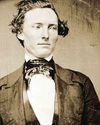
FIREARMS COLT WALKER 47
THE LEGENDARY HANDGUN THAT REALLY WON THE WEST
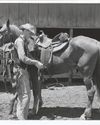
HERITAGE TRAVE
THE AMERICAN WEST IN ALL ITS GLORY OUR ANNUAL FAVORITES LIST CELEBRATES DESTINATIONS ACROSS THE WESTERN UNITED STATES.
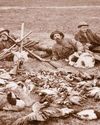
Wild Turkey, and Not the Drinkin' Kind
The actual bird was a favorite of pioneers.
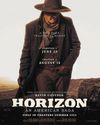
THE PASSION PROJECTS OF THE MODERN WESTERN
A YEAR OF UNDERRATED EXCELLENCE
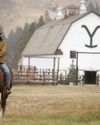
WESTERN BOOKS THEN AND NOW
THE STATE OF WESTERN HISTORY AND FICTION PUBLISHING IN 2024 IS ONE OF GRIT AND DETERMINATION.
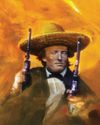
SAMUEL WALKER VALIANT WARRIOR
While a prisoner at the castle of Perote, Walker was put to work raising a flagpole. At the bottom of the hole, Walker placed a Yankee dime, vowing to someday come back and retrieve it, at the same time exacting revenge on his Mexican captors. In the summer of 1847, when Walker's mounted riflemen returned and routed Santa Anna's guerillas, the young captain kept his promise and got his dime back.
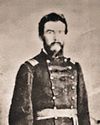
THE BATTLE OF CENTRALIA
ON September 27, 1864, Bloody Bill Anderson and about 80 men took over the small railroad village of Centralia, looting stores and discovering a barrel of whiskey that they hauled out into the street. Wild enough when sober, they soon were roaring drunk.
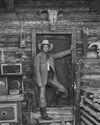
THE MAN WHO SHOOTS THE WEST
Jay Dusard is a living American photographer who has made Arizona his home for over 60 years, seeing it first in 1960 on a visit, moving here for good in 1963.
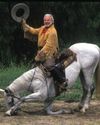
A TRUE WESTERNER INDEED PHIL SPANGENBERGER 1940-2024
Spangenberger had Nevada trained to bow by the legendary horse trainer, Glenn Randall, who trained Roy Rogers' Trigger, Gene Autry's Champion, Rex Allen's Koko and the Ben Hur chariot horses, among other great equines.

Where Did the Loot Go? - This is one of those find the money stories. And it's one that has attracted treasure hunters for more than 150 years.
Whatever happened to the $97,000 from the Reno Gang's last heist? Up to a dozen members of the Reno Gang stopped a Jeffersonville, Madison and Indianapolis train at a watering station in southern Indiana. The outlaws had prior intelligence about its main load: express car safes held about $97,000 in government bonds and notes. In the process of the job, one of the crew was killed and two others hurt. The gang made a clean getaway with the loot.